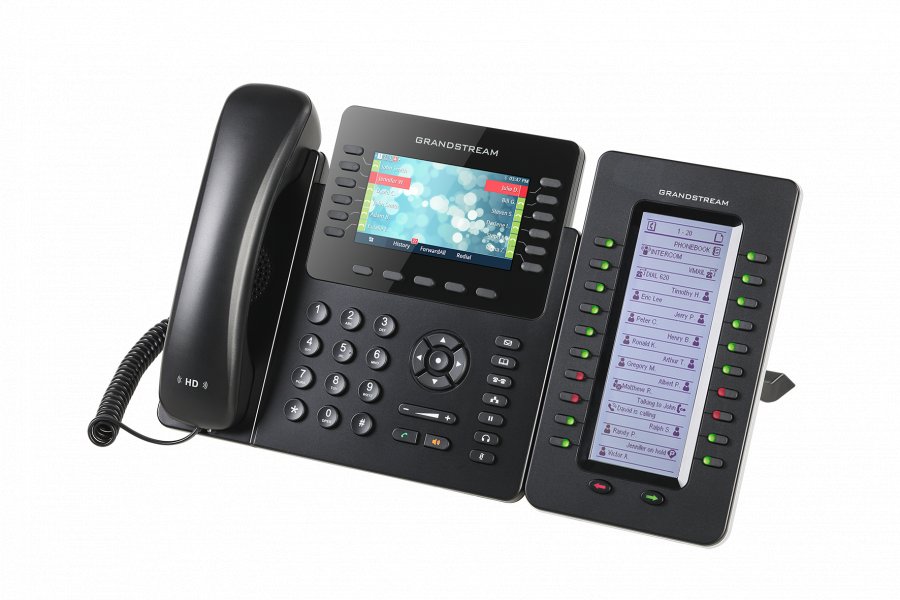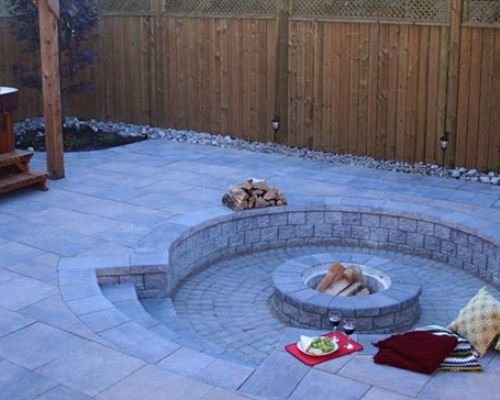Modern appliances are revolutionizing home comfort and efficiency, transforming daily routines beyond mere aesthetics. They automate chores, enhance sustainability, and integrate smart technology that adapts to our habits. But are these shiny upgrades truly reshaping our homes for the better? From energy-efficient refrigerators that monitor and manage food to washers that optimize water use, these devices are making homes more convenient and eco-friendly. Yet, they also pose challenges: high costs, privacy concerns, and rapid obsolescence. As technology advances, appliances are set to become more intuitive, learning from our behaviors and creating responsive living environments. This evolution promises a future where homes are seamlessly connected, smarter, and greener—raising the question: will these innovations truly redefine what home comfort and efficiency mean, or will they introduce new complexities? Discover how today’s appliances are shifting the balance between convenience, sustainability, and the realities of a connected world.
Upgrade Your Kitchen with Top-Brand Appliances from Canadian Appliance Source
Looking for reliable and affordable dishwasher options in the Greater Toronto Area? Canadian Appliance Source (CAS) is your premier destination for top brand name kitchen and home appliances, including Whirlpool, Bosch, KitchenAid, Samsung, LG, Electrolux, GE, Amana, Frigidaire, JennAir, Maytag, Thermador, and more—all at low prices. Our comprehensive services include home appliance sales, instant chat support, and exclusive incentive programs from leading brands. Whether you’re renovating or replacing, CAS offers a wide selection to fit your needs. For expert assistance, contact us at 1(877)374-3439 ext. 461 or email Rebecca.Chan@CanadianApartment.ca. Trust CAS to deliver quality appliances and exceptional service in the GTA.

Transforming Home Comfort and Efficiency with Modern Appliances
Modern appliances have become central to how we experience comfort and efficiency at home. They do more than just add a sleek look—they transform daily routines, making chores faster, easier, and more reliable. From refrigerators that keep food fresher longer with less energy to washing machines that handle laundry quietly and quickly, these devices work behind the scenes to keep our homes running smoothly. As technology advances, appliances now come equipped with smarter features that help households cut costs and reduce environmental impact, aligning convenience with sustainability.
Today’s appliances are characterized by innovative designs and energy-saving capabilities. Digital controls, programmable settings, and connectivity options allow us to monitor and manage them remotely through smartphones or voice assistants. Many models include eco-friendly modes, quick cycles, and durable construction, all aimed at boosting performance while lowering utility bills. These advancements reflect a focus on creating appliances that fit seamlessly into our eco-conscious, connected lifestyles, making everyday life more manageable and sustainable.
The influence of modern appliances extends far beyond mere convenience. They are reshaping how homes function daily, freeing up time and reducing stress. Smart refrigerators, for instance, can track expiration dates, suggest grocery lists, and even reorder supplies automatically—streamlining food management. Similarly, advanced dishwashers and washers optimize water and energy use based on load size, conserving resources while improving results. These innovations turn routine chores into effortless activities, allowing families to enjoy their homes more and focus on what truly matters.
Energy efficiency remains at the core of current appliance design. Features like inverter motors, sensors, and eco-friendly modes help reduce power and water consumption without sacrificing performance. Over time, these technologies lead to lower utility bills and a smaller carbon footprint. Appliances that adapt to household habits—such as refrigerators maintaining optimal temperatures or washing machines adjusting cycles—make sustainable living more practical and accessible, helping families strike a balance between comfort and environmental responsibility.
Smart technology has become deeply integrated into appliances, transforming homes into responsive environments. Connected devices can be controlled remotely via smartphones or voice commands, simplifying routine management. Imagine starting your laundry from another room or receiving alerts about low groceries—all with just a few taps or a voice command. These features save time, reduce household stress, and create a more personalized living space. As affordability and accessibility improve, smart appliances are becoming standard, reshaping how we interact with our homes and manage daily routines.
Despite these advantages, adopting modern appliances comes with challenges. The initial investment in high-tech models can be significant, and setting up connected devices may require some technical know-how. Privacy concerns around data collection and security also come into play as homes become more connected. Rapid technological changes can lead to quick obsolescence, prompting frequent upgrades that may be costly. Infrastructure issues like unreliable internet can also limit the full benefits of smart home systems. Still, these appliances are redefining what comfort and efficiency mean, offering a glimpse into a more convenient, sustainable future.
Tracing the Evolution of Household Appliances from Simplicity to Smart Technology
The story of household appliances is a story of continuous innovation that mirrors how our lifestyles have evolved over time. Early models were simple, often manual or basic electric devices designed to reduce the burden of chores. Hand-powered vacuum cleaners or primitive refrigerators laid the groundwork for a home environment where routine tasks could be managed more efficiently. As electricity became more widespread, these basic appliances gained popularity quickly, transforming daily routines into more reliable and less labor-intensive activities.
By the mid-20th century, technological advances brought a new wave of smarter, more capable devices. Electric motors, better insulation, and improved controls made appliances like dishwashers and washing machines more efficient, saving time and effort. These innovations turned appliances into symbols of modern living, especially in urban areas where space and time were limited. Features like programmable settings and timers helped households run more smoothly, making chores easier and more predictable.
The last few decades have seen a significant leap forward thanks to electronics and microprocessors. Today’s appliances incorporate digital controls, sensors, and connectivity, turning them into highly intelligent systems. Refrigerators now monitor expiration dates, suggest grocery lists, and can even place online orders. Washing machines automatically adjust their cycles based on load size and fabric type, conserving water and energy while delivering better cleaning results. These developments reflect a shift toward smarter, more sustainable home management that makes everyday routines more efficient and environmentally conscious.
Cultural shifts, especially after World War II, accelerated this progress. As urban living and women’s participation in the workforce increased, demand for labor-saving devices soared. Compact, versatile appliances like microwave ovens and front-loading washers became household staples, addressing the needs of busy families and smaller living spaces. Today, the focus continues to shift toward eco-friendly designs and connectivity, aligning with our growing commitment to sustainability and convenience.
Major brands like Whirlpool, Samsung, LG, and Bosch have played crucial roles in this evolution. Their ongoing innovations in energy efficiency and smart technology push appliances toward higher performance and seamless integration into connected homes. Regulations and standards support these advancements, ensuring appliances are safer, more sustainable, and better suited to our changing needs. This ongoing journey highlights how household appliances have grown from basic tools into sophisticated, connected systems that shape our daily lives.
Understanding this evolution helps us appreciate how appliances have shaped our homes and routines. They’ve transitioned from simple devices to essential parts of a modern, efficient living environment. As technology continues to advance, the line between convenience and sustainability will blur even further, promising smarter solutions that enhance comfort while reducing environmental impact. This ongoing story reflects our relentless pursuit of better, more innovative ways to live comfortably and responsibly.

Redefining Home Comfort and Efficiency Through Modern Appliance Innovations
Modern appliances are fundamentally transforming home comfort and efficiency in ways that go beyond simple convenience. They automate routine chores, freeing up valuable time and reducing daily stress. For example, smart refrigerators now monitor expiration dates, suggest grocery lists, and even reorder supplies automatically, streamlining food management and minimizing waste. Similarly, washing machines that adjust their cycles based on load size and fabric type conserve water and energy while delivering superior cleaning. These innovations create a more comfortable living environment without increasing utility costs or sacrificing sustainability.
The impact of these appliances extends into how we design and utilize our living spaces. Features like precise temperature controls in refrigerators help keep food fresher longer, supporting healthier eating habits and reducing food waste. Quiet, efficient dishwashers and laundry machines contribute to a calmer, less cluttered home, allowing families to enjoy a more peaceful atmosphere. By automating mundane chores, these devices turn everyday activities into effortless routines, giving families more time to focus on what truly matters—whether that’s relaxing, socializing, or pursuing passions.
Energy efficiency remains at the core of modern appliance innovation, significantly influencing household expenses. Advanced technologies like inverter motors, smart sensors, and eco-friendly modes enable appliances to operate with minimal power and water use, without compromising performance. Over time, this reduces utility bills and lowers households’ carbon footprints. Appliances that adapt to household habits—such as refrigerators maintaining optimal temperatures or washers adjusting cycles—make sustainable living practical and accessible, aligning comfort with environmental responsibility.
Smart technology has deeply integrated into appliances, transforming homes into responsive, connected environments. Remote control via smartphones, voice-activated commands, and real-time alerts for maintenance or issues simplify household management. Imagine starting a load of laundry from another room or receiving a notification when groceries are low—all with a few taps or voice commands. These features save time, reduce household stress, and personalize the living experience, making daily routines more seamless and efficient.
While these advancements offer numerous benefits, they also come with challenges. The initial cost of high-tech appliances can be steep, and setting up connected devices may require some technical know-how. Privacy concerns around data security are valid as homes become more interconnected. Additionally, rapid technological evolution can lead to quick obsolescence, prompting frequent upgrades that may be costly. Infrastructure limitations, such as unreliable internet, can also hinder full utilization of smart features. Nevertheless, the ongoing development of appliances continues to redefine what home comfort and efficiency mean, shaping a future where technology and sustainability go hand in hand.
As these innovations become more widespread, consumers are increasingly seeking out the latest technologies to enhance their living spaces. For those interested in exploring further, learning about modern home appliances can provide valuable insights into how these devices are shaping the future of comfortable, efficient living.
Mastering Appliance Use: Strategies for Selection, Maintenance, and Optimization
Choosing the right appliances starts with understanding your household’s actual needs. Consider how often you’ll use each device and which features matter most—whether it’s a large capacity refrigerator for a busy family or a compact, energy-efficient washer for a smaller space. Paying attention to energy ratings and innovative features like quick wash cycles or smart controls can help you select appliances that will serve you well over time. Doing some research beforehand ensures durability and long-term savings on utility bills, making your investment truly worthwhile.
Proper installation is crucial to getting the most out of your appliances. When professionals set up your devices, they ensure everything operates safely and efficiently from the start. Correct calibration prevents issues like leaks or electrical faults that can shorten an appliance’s lifespan or lead to costly repairs. Well-installed appliances tend to perform better, last longer, and save you money in the long run, providing peace of mind that your investment is protected.
Regular maintenance plays a big role in maximizing appliance benefits. Simple tasks like cleaning filters, checking seals, and scheduling periodic inspections help keep everything running smoothly. Keeping appliances clean and well-maintained prevents breakdowns, reduces energy waste, and extends their lifespan. Spending a few minutes each month on upkeep can save you from unexpected repairs and costly replacements, ensuring your home runs seamlessly.
Using your appliances wisely is equally important. Maximize load sizes when running your dishwasher or laundry machine to conserve water and energy. Adjust refrigerator temperatures to optimal settings—too cold wastes power, too warm risks food spoilage. Eco-friendly modes and delayed start options are often worth exploring; they help cut costs without sacrificing performance. Small routine adjustments can lead to significant savings over time, making your appliances more efficient.
Monitoring performance helps catch issues early. Pay attention to unusual noises, longer cycle times, or increases in utility bills, as these can signal problems. Many modern appliances include smart features that provide usage data and maintenance alerts. Acting promptly on these signals prevents small problems from becoming major repairs, keeping appliances operating efficiently and saving money.
Preventive care is key. Regularly cleaning refrigerator coils, replacing worn seals, and inspecting hoses can prevent energy waste and water leaks. Scheduling professional check-ups every few years keeps everything in top shape and ensures safety. These small efforts reduce the risk of unexpected breakdowns, avoid disruptions, and keep your appliances performing at their best.
Staying informed about new features and upgrade options also helps optimize appliance use. Technology advances rapidly, and newer models often include improvements that boost efficiency or convenience. Sometimes, a simple software update or replacing an old appliance with a more modern one can make a noticeable difference. Keeping up with industry trends and reading reviews ensures your home stays current, efficient, and well-equipped for the future.

Shaping the Future: Trends and Innovations in Appliance Technology
The future of home appliances promises a seamless blend of smarter technology and enhanced sustainability, fundamentally transforming how we live and manage our daily routines. As innovation accelerates, appliances are expected to become more intuitive, learning from our habits and adjusting their functions automatically to maximize efficiency. Artificial intelligence will likely play a larger role, enabling devices like refrigerators, ovens, and washing machines to optimize their performance with minimal user input, helping households save energy and reduce costs effortlessly.
Energy efficiency will remain a top priority, with manufacturers developing models that use less power while maintaining high performance. We are already seeing this shift with advanced insulation, inverter motors, and eco-friendly modes, and future appliances will incorporate even more sustainable materials and recyclable components. These advancements will make it easier for consumers to adopt environmentally conscious choices without sacrificing convenience, contributing to a greener, more sustainable living environment.
Connectivity will become increasingly integrated into everyday appliances, creating comprehensive smart home ecosystems. This integration will allow us to control and monitor multiple devices from a single app or through voice commands, making routine management more straightforward. Envision starting your laundry as you leave work or checking your fridge’s contents while grocery shopping—all managed seamlessly through interconnected systems. As these technologies become more affordable, they will become standard, embedding smart appliances into our daily lives and redefining home management.
Beyond individual devices, homes will evolve into responsive environments that adapt dynamically to occupancy, weather conditions, and air quality. Embedded sensors will inform appliances about external and internal factors, enabling automatic adjustments in temperature, ventilation, and energy use. This interconnected approach will turn homes into living systems that enhance comfort and conserve resources, creating spaces that support our well-being while minimizing environmental impact.
As these innovations become more accessible and cost-effective, we can expect a broader adoption of intelligent, eco-conscious appliances. Continuous improvements in manufacturing and increased competition will drive prices down, making advanced technology available to a wider range of households. While concerns around data privacy and cybersecurity will need ongoing attention, the trajectory is clear: appliances will continue to evolve into smarter, more sustainable tools that elevate home comfort and efficiency, shaping a future where technology and eco-responsibility go hand in hand.








